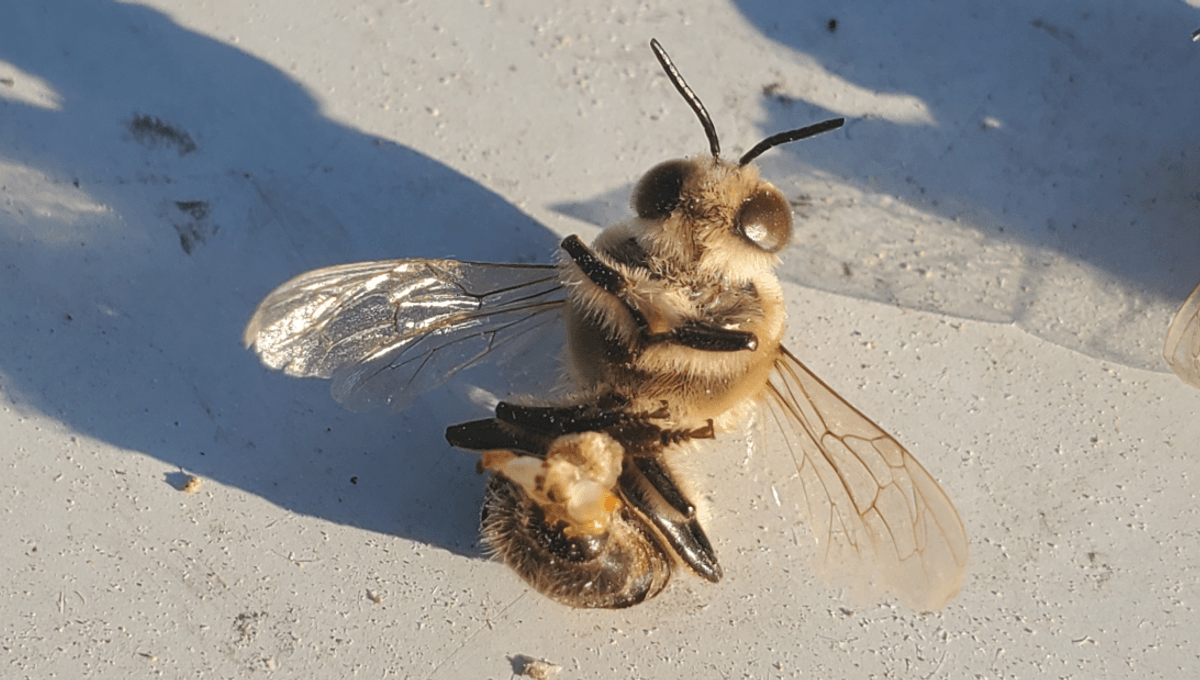
Biosecurity isn’t typically very funny, but please, I beg of you, commit a few moments to watching this discussion at the Australian Senate about honeybee breeding. The year is 2016, and a lot of people at the Senate Rural and Regional Affairs and Transport Legislation Committee are about to learn that bees explode when they mate.
The discussion is part of an investigation into the biosecurity risks of importing bee semen into Australia. The substance doesn’t arrive in-bee, but in vials, prompting NSW Liberal Senator Bill Heffernan to ask, “Do you have to kill the bee to get the semen? How do you get the semen out of the bee?”
“So, that’s the most common question we get asked, Senator,” says Department of Agriculture and Water Resources first assistant secretary Tim Chapman. “It’s part of the vernacular; everyone wants to know how you get semen out of a bee[…] Basically, you squeeze the bee, which overts its endophallus, and then the semen is collected from the end.”
“And the bee is still alive when you’ve finished?” says Hefferman.
“No, but bees also die when they mate naturally,” says Chapman. “In fact, they explode.”
Drones, which are male bees, come into this world with one purpose. They have no stinger, so can’t defend themselves; they don’t gather pollen, so can’t feed themselves and instead rely on the help of female worker bees. The only thing they know how to do is screw, but even that doesn’t end well.
When a queen bee reaches sexual maturity at seven days old, she takes to the air for a maiden mating flight, known as a “nuptial flight”, exuding irresistible pheromones as she does. This lures in the drones who are hot on the queen’s tail, eager to pass on their sperm.
Sperm transference in bees is an uncharacteristically violent process, and like many other mating rituals among insects and arachnids, it’s the males that come off worse. Clasping onto the back of the queen, the drone’s endophallus (bees answer to a penis) explosively enters her stinging chamber, creating a pop sound that – incredibly – is audible to the human ear.
That’s right, you can hear a bee ejaculate.
Having an endophallus explode into your stinging chamber sounds like a rough deal, but the queen will continue on her nuptial flight to mate with a further dozen-or-so drones, so it doesn’t impact them too negatively. The males, on the other hand, hoo boy.
“The endophallus is stored inside of the drone’s body,” said Jamie Ellis, professor of entomology at the University of Florida, to Snopes. “During storage, the endophallus is inverted, or turned inside out. The endophallus is forced out of the abdomen when the drone copulates with the queen.”
“At this point, what was the inside of the endophallus while in the body becomes the outside of the endophallus when pushed from the body. It takes much of the drone’s hemolymph to force the endophallus out of the body. Thus, the everted drone becomes paralyzed and ultimately dies as a result of forcing out his endophallus and copulating with the queen.”
Talk about going out with a bang, and it gets worse.
The explosive nature of bee sex unfortunately isn’t limited to reproductive events, as research has found that intense heatwaves sometimes result in – and this is a direct quote here – bees “explosively ejaculating to death”. The heavy news came from the University of British Columbia back in 2022.
Here, researchers revealed the devastating effect heat has on drones, causing them to convulse in a way that forces them to ejaculate, jettisoning the enormous endophallus from their abdomens and causing fatal injury.
“When drones die from shock, they spontaneously ejaculate,” postdoctoral fellow at UBC’s Michael Smith Laboratories and expert in bee health, Dr Alison McAfee, said in a statement. “They have this elaborate endophallus that comes out and is about the size of their own abdomen. It’s pretty extreme.”
Source Link: Do Bees Really “Explode” When They Mate? Yes, Yes They Do